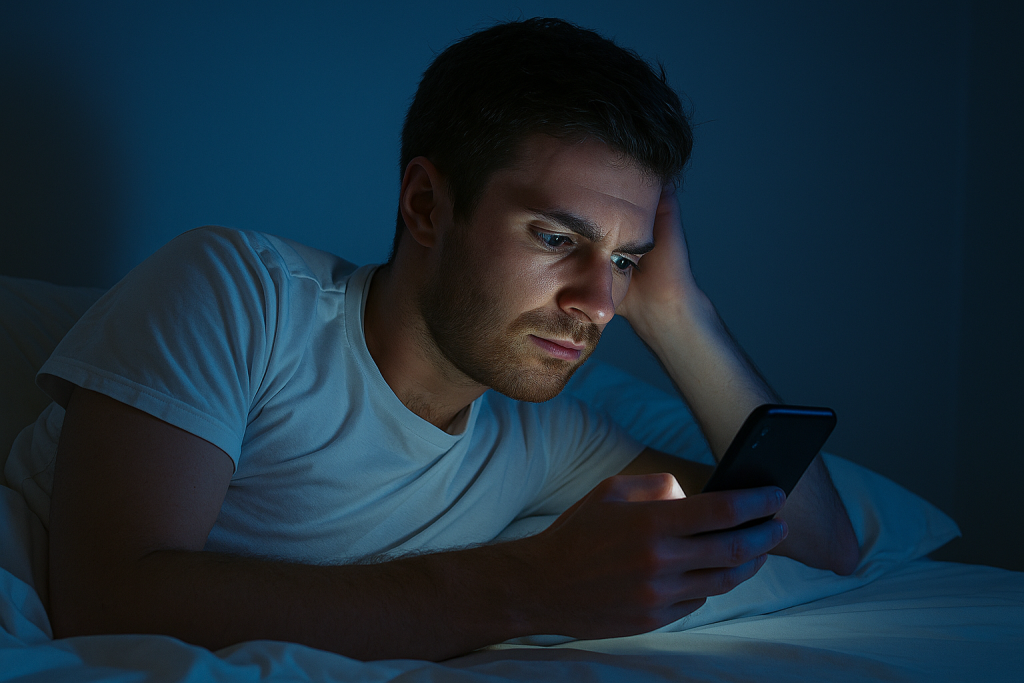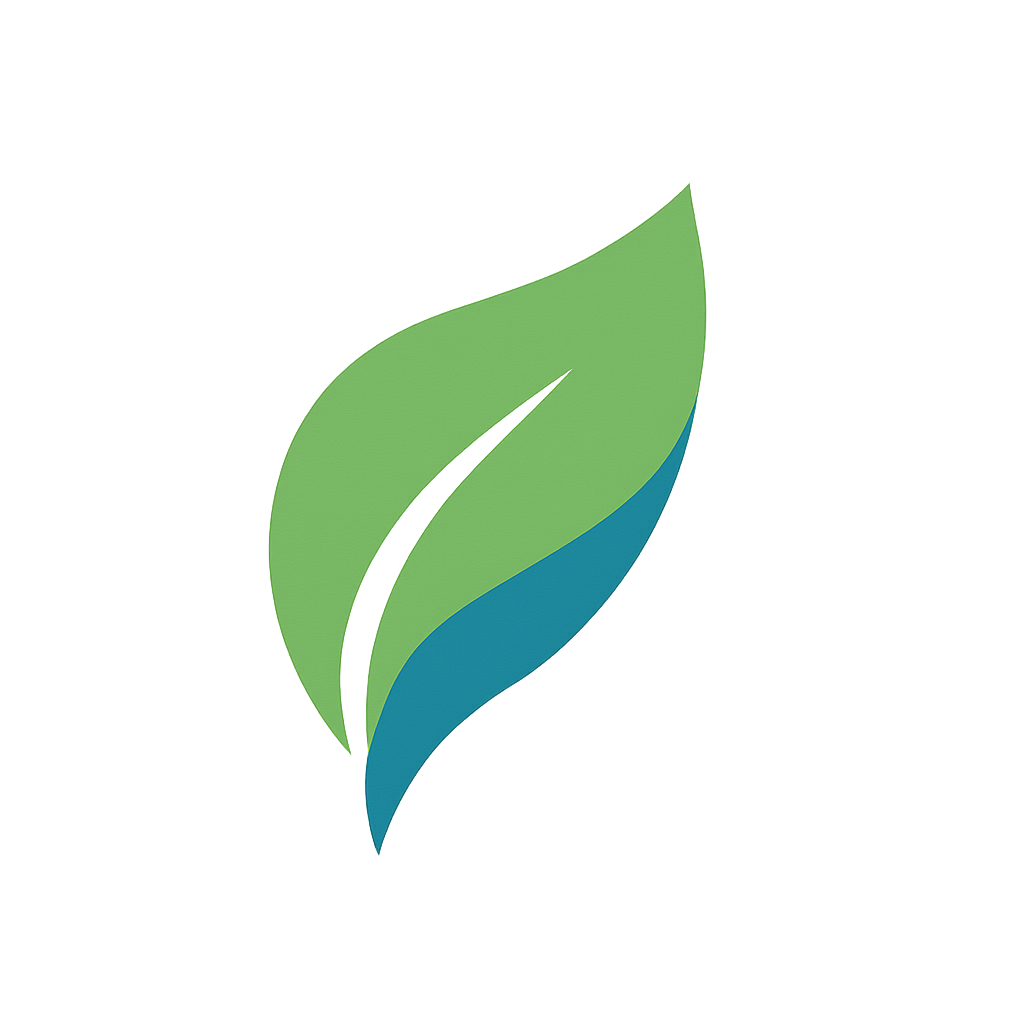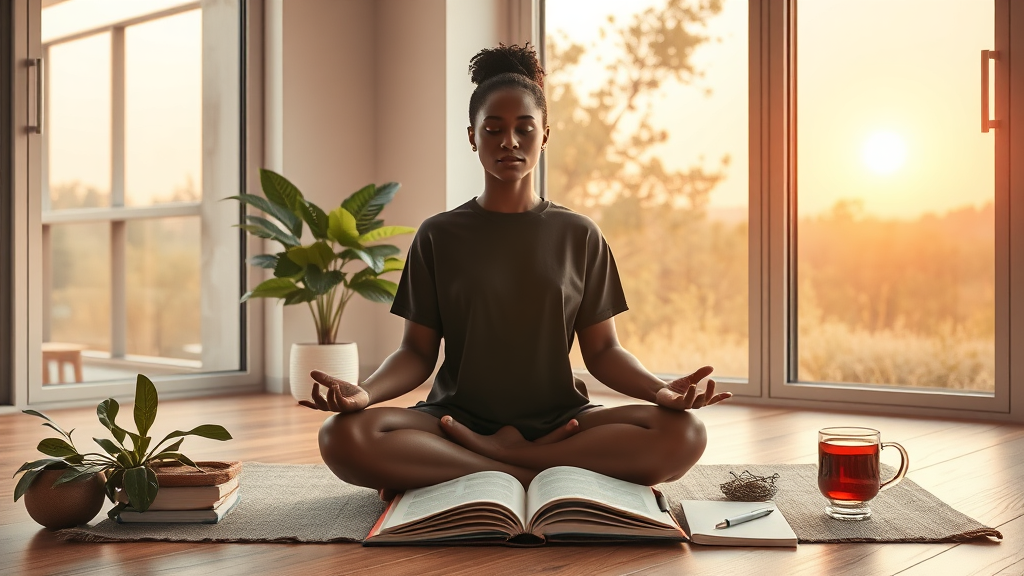
In our digital age, we’re more connected than ever. From scrolling through Instagram before bed to binge-watching Netflix, screens dominate our evenings. But while this tech lifestyle keeps us entertained, it also has a hidden downside—blue light exposure. Many people are unaware of how harmful blue light can be to their sleep patterns and overall health. In this article, we’ll explore how blue light affects your sleep, why it’s a big deal, and most importantly—what you can do about it.
What Is Blue Light?
Blue light is a high-energy visible (HEV) light on the color spectrum. It’s naturally present in sunlight and is beneficial during the day because it boosts alertness, mood, and performance. However, blue light is also emitted by LED lighting and digital devices like smartphones, tablets, laptops, and TVs.
While exposure to natural blue light during the daytime is good, nighttime exposure can disrupt your body’s internal clock—or circadian rhythm—and throw off your ability to fall and stay asleep.
The Science: How Blue Light Disrupts Sleep
To understand why blue light affects sleep, we need to talk about melatonin. Melatonin is a hormone your brain produces in response to darkness. It helps regulate your sleep-wake cycle.
When you expose your eyes to blue light in the evening, it tricks your brain into thinking it’s still daytime. As a result, melatonin production is delayed, making it harder to fall asleep and reducing sleep quality.
Studies have shown that blue light suppresses melatonin more than any other wavelength. In fact, just two hours of blue light exposure at night can significantly suppress melatonin levels.
Effects of Blue Light on Your Sleep and Health
- Difficulty Falling Asleep
You might toss and turn in bed, not knowing why you’re wide awake at midnight. Blue light can delay the timing of your body clock, making it harder to fall asleep. - Reduced REM Sleep
REM (Rapid Eye Movement) sleep is essential for memory consolidation and mood regulation. Disruption to your sleep cycle can reduce REM stages, leaving you groggy and unfocused the next day. - Increased Risk of Insomnia
Chronic exposure to blue light before bedtime can contribute to long-term sleep problems like insomnia. - Mood and Mental Health
Poor sleep is linked to anxiety, depression, and irritability. Over time, a lack of quality sleep due to blue light can affect your emotional well-being. - Weakened Immune System
Your body repairs itself during deep sleep. When sleep is disrupted, your immune function suffers, making you more susceptible to illness.
Common Sources of Blue Light
- Smartphones
- Tablets
- Laptops
- LED TVs
- LED and fluorescent lighting
- Video game consoles
- Digital alarm clocks
It’s nearly impossible to eliminate blue light entirely, but being aware of where it comes from can help you take steps to minimize its effects.
How to Protect Your Sleep from Blue Light
Fortunately, there are effective ways to reduce the impact of blue light and improve your sleep quality.
1. Use Blue Light Filters
Most smartphones and computers now come with built-in blue light filters (often called “Night Mode” or “Night Shift”). These tools reduce blue light emissions and shift the screen tone to a warmer hue. Set it to turn on automatically after sunset.
2. Wear Blue Light Blocking Glasses
Blue light blocking glasses are a practical solution, especially if you must use screens at night. These glasses filter out blue wavelengths and help maintain melatonin levels.
Follow our social media to get an daily update!
3. Limit Screen Time Before Bed
Try to avoid screens at least 1–2 hours before sleeping. Instead of watching TV or scrolling your phone, consider reading a physical book, journaling, or doing some light stretching.
4. Install Screen-Adjusting Software
Apps like f.lux for computers and Twilight for Android devices automatically adjust the screen’s color temperature based on the time of day.
5. Create a Screen-Free Bedroom
Make your bedroom a sanctuary for rest. Keep screens out, use warm lighting, and focus on relaxing activities that help you wind down.
6. Opt for Red or Amber Night Lights
If you need light at night—for example, during a bathroom visit—use dim red or amber bulbs. These colors have the least impact on melatonin.
7. Follow a Consistent Sleep Schedule
Even with some blue light exposure, sticking to a regular sleep and wake time helps your body regulate its internal clock better.
Natural Ways to Improve Sleep
In addition to reducing blue light exposure, these natural sleep tips can support a healthier rest routine:
- Daily Exercise: Moderate activity during the day can help you sleep more deeply.
- Mindfulness Meditation: Practicing mindfulness can quiet your thoughts before bed.
- Herbal Teas: Chamomile or valerian root teas can be calming and sleep-promoting.
- A Sleep-Inducing Environment: Keep your room dark, cool, and quiet. Use blackout curtains and white noise if necessary.
When to See a Doctor
If you’ve tried reducing blue light exposure and improving sleep hygiene but still struggle to sleep, it may be time to consult a healthcare provider. Chronic sleep deprivation can be a symptom of underlying conditions like sleep apnea, anxiety disorders, or hormonal imbalances.
Final Thoughts
Blue light isn’t evil—it plays an important role in keeping us alert and productive during the day. But like many good things, too much at the wrong time can become harmful. With modern life making screen time inevitable, learning to manage blue light exposure—especially in the evening—can be a game-changer for your sleep and overall well-being.
Start small: dim your screens, cut off tech use before bed, and see how quickly your sleep improves. Your body (and mind) will thank you.



